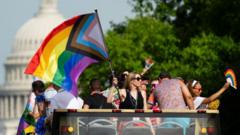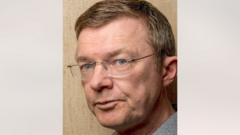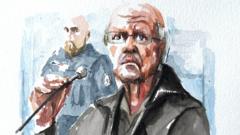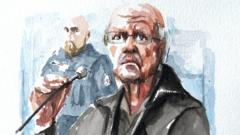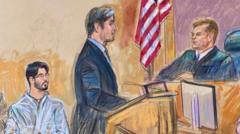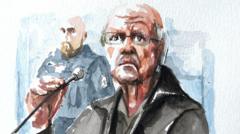In a groundbreaking selection, Robert Francis Prevost has been elected as the first-ever American pope, adopting the name Pope Leo XIV, and signaling a new direction for the Catholic Church with his global perspective and commitment to community.
Pope Leo XIV: A Historic Milestone as the First American Pontiff

Pope Leo XIV: A Historic Milestone as the First American Pontiff
Robert Francis Prevost's election as Pope Leo XIV marks a significant moment in the history of the Catholic Church, showcasing a transcultural vision shaped by years of international service.
May 8, 2025, 1:22 p.m. ET
Robert Francis Prevost, the newly chosen 267th pontiff of the Roman Catholic Church, has made history by becoming the first pope hailing from the United States. Elected on Thursday, the Chicago-born clergy member has defied expectations that an American papacy was unlikely. Prevost, 69, has spent a significant portion of his career outside the U.S., establishing a reputation that transcends national borders.
Ordained as a priest in 1982 at the age of 27, Prevost became a naturalized citizen of Peru, where he served for two decades, eventually becoming a bishop. He previously led an influential Vatican office responsible for the selection and management of bishops worldwide until the death of Pope Francis. A member of the Order of St. Augustine, he shares similarities with his predecessor in prioritizing care for the poor and vulnerable.
Often recognized for his reserved demeanor, many speculate that Prevost will represent a stylistic shift away from the more charismatic leadership of Francis. However, supporters anticipate he will uphold the consultative practices that invite greater lay involvement within the Church, continuing the legacy of dialogue initiated by his predecessor.
One area of uncertainty surrounds his stance on LGBTQ+ issues, which was notably progressive under Pope Francis. Although Prevost has yet to take a definitive position, he has previously expressed concerns about modern societal values conflicting with Gospel teachings, specifically referencing 'alternative families' in a 2012 address.
Furthermore, his past has come under scrutiny for his response to allegations of sexual abuse among clergy, a challenge faced by many church leaders today.
This historical milestone sees the Catholic Church under the leadership of a pontiff who embodies a diverse global experience, potentially paving new paths for a church awaiting renewal and unity.
Robert Francis Prevost, the newly chosen 267th pontiff of the Roman Catholic Church, has made history by becoming the first pope hailing from the United States. Elected on Thursday, the Chicago-born clergy member has defied expectations that an American papacy was unlikely. Prevost, 69, has spent a significant portion of his career outside the U.S., establishing a reputation that transcends national borders.
Ordained as a priest in 1982 at the age of 27, Prevost became a naturalized citizen of Peru, where he served for two decades, eventually becoming a bishop. He previously led an influential Vatican office responsible for the selection and management of bishops worldwide until the death of Pope Francis. A member of the Order of St. Augustine, he shares similarities with his predecessor in prioritizing care for the poor and vulnerable.
Often recognized for his reserved demeanor, many speculate that Prevost will represent a stylistic shift away from the more charismatic leadership of Francis. However, supporters anticipate he will uphold the consultative practices that invite greater lay involvement within the Church, continuing the legacy of dialogue initiated by his predecessor.
One area of uncertainty surrounds his stance on LGBTQ+ issues, which was notably progressive under Pope Francis. Although Prevost has yet to take a definitive position, he has previously expressed concerns about modern societal values conflicting with Gospel teachings, specifically referencing 'alternative families' in a 2012 address.
Furthermore, his past has come under scrutiny for his response to allegations of sexual abuse among clergy, a challenge faced by many church leaders today.
This historical milestone sees the Catholic Church under the leadership of a pontiff who embodies a diverse global experience, potentially paving new paths for a church awaiting renewal and unity.





